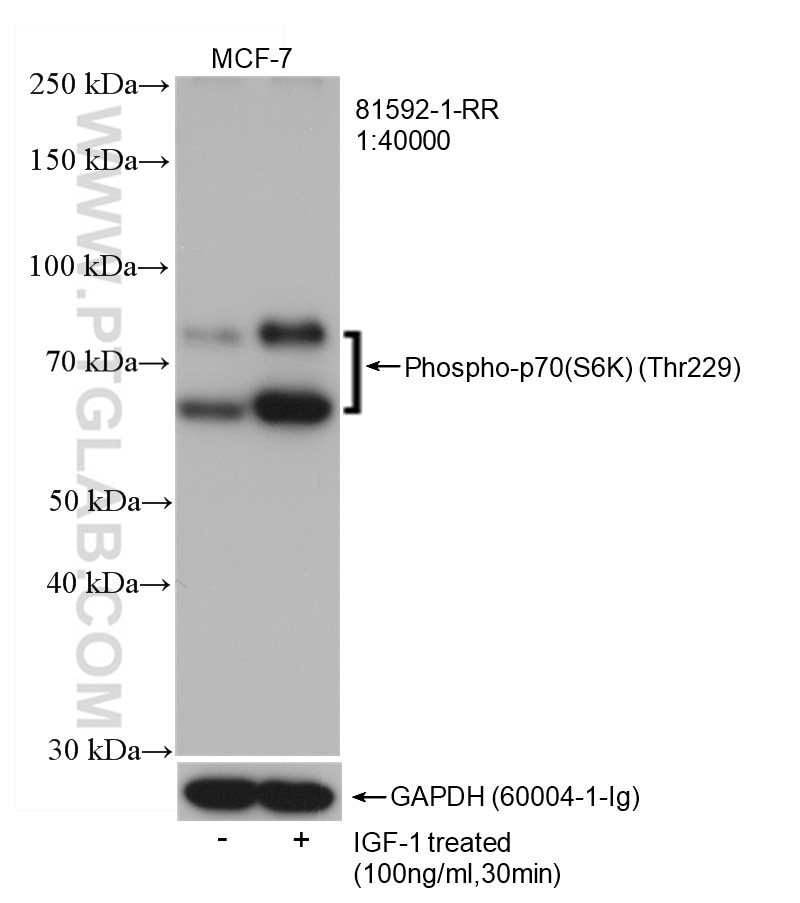Product Information
81592-1-PBS targets Phospho-p70(S6K) (Thr229) in WB, Indirect ELISA applications and shows reactivity with Human samples.
| Tested Reactivity | Human |
| Host / Isotype | Rabbit / IgG |
| Class | Recombinant |
| Type | Antibody |
| Immunogen | Peptide Predict reactive species |
| Full Name | ribosomal protein S6 kinase, 70kDa, polypeptide 1 |
| Calculated Molecular Weight | 59 kDa |
| Observed Molecular Weight | 65-85 kDa |
| GenBank Accession Number | BC053365 |
| Gene Symbol | p70 S6K |
| Gene ID (NCBI) | 6198 |
| Conjugate | Unconjugated |
| Form | Liquid |
| Purification Method | Protein A purification |
| UNIPROT ID | P23443 |
| Storage Buffer | PBS only, pH 7.3. |
| Storage Conditions | Store at -80°C. |
Background Information
RPS6KB1(Ribosomal protein S6 kinase beta-1) is also named as STK14A, p70 S6KA, and belongs to the S6 kinase subfamily. RPS6KB1 is a major substrate of mTOR and acts as a crucial effector of mTOR signaling pathway. It plays a key role in cell growth and proliferation by regulating INS sensitivity, metabolism, protein synthesis, and cell cycle. RPS6KB1 may play an important role in the progression of HCC and could serve as a potential molecular target for HCC therapy (PMID:22684641). The Rps6kb1 gene encodes the 70 kDa ribosomal protein S6 kinase (p70S6K). The PI3K/mTOR signalling pathway is one of the major mechanisms for controlling cell survival, proliferation, and metabolism and is the central regulator of translation of some components of the protein synthesis system. Due to alternative translation, two isoform S6K1 proteins are known to exist in mammalian cells: p85 S6K1 and p70 S6K1, which is identical to p85 S6K but lacks its first 23 amino acids. In addition, mammalian cells express a second S6K1 isoform spanning 316 amino acids (p31 S6K1).



